Personalized Tech Tools: Brands infuse technology into local store marketing

As the president of Creative Colors International, Mark J. Bollman deeply understands the key role that social media plays in the success of franchises. Perhaps more importantly, he also understands his franchisees.
The company specializes in the repair and restoration of vinyl, leather, fabric, and plastic seating. Its franchisees offer onsite, mobile services to mostly commercial clients. Many of the franchisees are owner-operators, who, along with any technicians they might hire, spend hours every day in vans working routes of repeat customers.
When they come home after a long day, they power through their invoicing and answer requests for estimates. The last thing they want to do is sign on to various social media platforms to plug their business. The company’s solution to that predicament is technology.
For the past couple of years, Creative Colors franchisees have been using a platform called Rallio, one of several social media marketing tools available to help businesses manage social media accounts. Rallio enables Creative Colors franchisees to choose from more than 75 branded templates to tailor their messages to local audiences. They can quickly and easily create promotional campaigns on Facebook, LinkedIn, Instagram, X (formerly known as Twitter), and other networks.
“A franchisee can go in and schedule an entire year’s worth of posts probably in about 20 minutes—what day of the week they want it, how many times per week. It really allows them to do them all in one place,” says Bollman. “Likewise, if customers have inquiries from any of those social platforms, they all get fed through to Rallio. So, the franchisee does not need to go to Facebook to respond or to LinkedIn to respond or to Instagram. They can do it all through the dashboard.”
Creative Colors is one of many franchisors that have turned to technology to help improve local store marketing support and, subsequently, drive more revenue. With tools that make it easier for franchisees to post on social media, apps that tie loyalty rewards to a local sports team’s performance or individual customer behavior, and web pages that highlight amenities at specific locations, franchisors are better equipping franchise operators to promote their products and services to targeted communities.
National, brand-level marketing is as important as it’s ever been, especially for maintaining consistency and awareness. Still, franchisors know that no one understands all of the nuances of local markets better than franchisees.
“It’s all about local, grassroots marketing,” Bollman says. While some of the franchisees dabble in advertising with local newspapers or radio stations, he adds, social media provides “the biggest impact for net return for dollar cost per average.” Because of that, franchise operators quickly recognized the usefulness of social media marketing platforms.
“Everything we do is meant to try to provide value-add for franchisees that ultimately helps their cash register ring,” Bollman says. “Because, if it doesn’t really help franchisees make any more money or save them time, quite frankly, they’re just not interested, and they don’t get engaged.”
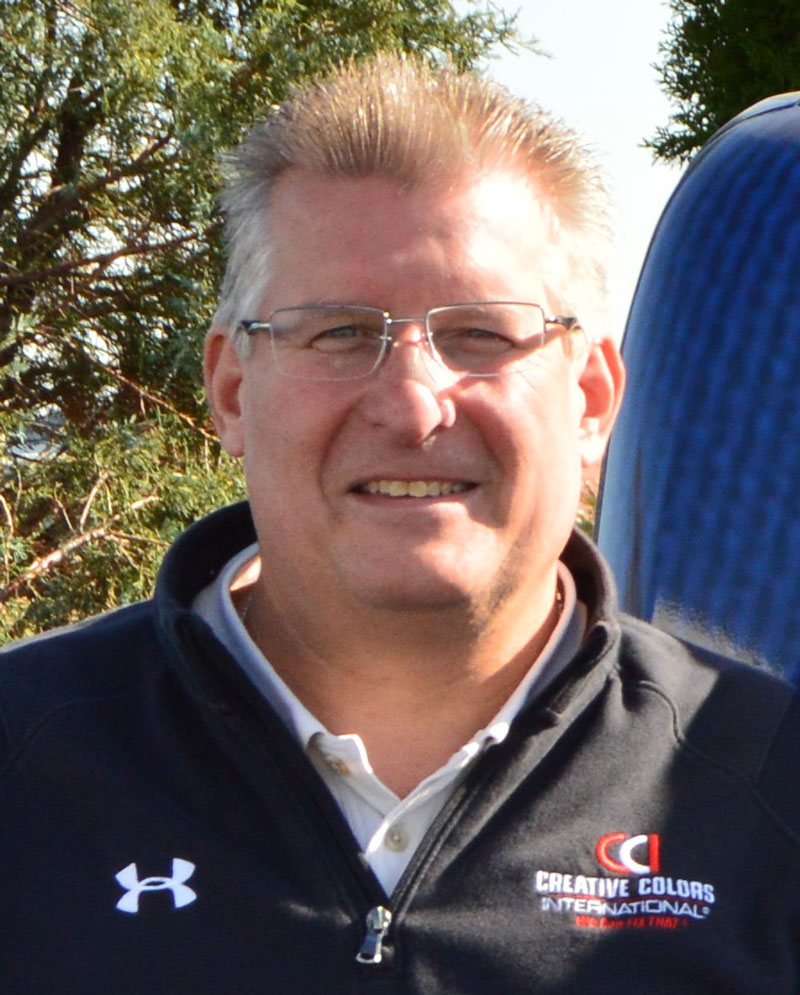
The game changer
Creative Colors International, which has been around since 1980 and began franchising in 1991, has 75 locations in 26 states. Before the company adopted a social media marketing platform, it was hard to keep the brand marketing consistent on social media “because franchisees were all trying to do their own thing,” says Bollman, who’s been with the company since 1992.
“They were trying to set up their own Instagram account or trying to set up their own Facebook account with no set, standard branding even though we had guidelines in place in writing. It was just very tough to manage, to make sure everybody was following the same format. Obviously, we’re not a brand that has 500 locations. But, if we had 500 doing it, it would have been even more challenging. Having 60 or 70, trying to wrangle everybody, and to make sure they were all operating the same way and following the guidelines, it was sort of like the wild Wild West.”
In addition to the library of prewritten social media messages, there’s the option to create custom posts using the artificial intelligence function. Rallio doesn’t just make it easier for franchisees to create local social media campaigns; it takes the work out of soliciting online reviews.
“When they complete a job with the customer, they can email or text the customer right away, saying, ‘Thank you for your business. Would you mind leaving us a review?’” Bollman says. “They can send them a link so that customers can go through and complete a series of two or three simple questions on whether they are satisfied with Creative Colors’ services. And then from there, franchisees have the ability to have those reviews posted on Google, Facebook, et cetera.”
Franchisees can also quickly update business information on 30 different online directory listings. “If the franchisee happens to change their phone number or if they want to update their hours, they can do it through this single dashboard, then the update is pushed out within 24 hours to all the other platforms, including Google My Business, Facebook, YP.com, and a host of other online directories.”
Bollman says Creative Colors’ success in finding the right tool for their franchisees has been a game changer. “From a corporate standpoint, we can control the brand. The messaging and the branding are identical whether somebody in California is making a post or the guy in Alpharetta, Georgia,” he says. “With a franchise brand, following a system of guidelines and standards is of No. 1 importance to make sure that nobody’s doing something they shouldn’t be, which could harm the brand. Rallio has made that easier.”
Another benefit: There’s no need for franchisees to pay someone to put together a promotional campaign for their businesses. “From a price point, it’s spot on, and our franchisees love it, whether they’re a single operator or somebody who has 22 trucks,” Bollman says. “It’s sort of a one-size-fits-all approach. And the more that they put into it, the more they get out of it. It’s really the win-win for us from a branding standpoint and for unifying the system.”
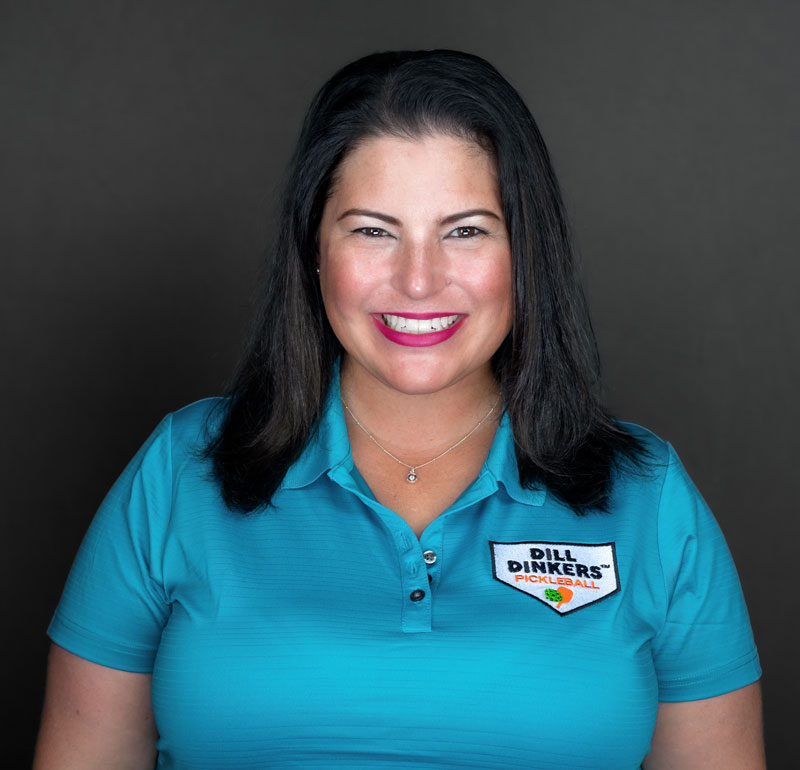
Deeper customer engagement
Dill Dinkers is an emerging brand that started in Columbia, Maryland, in 2022 to ride the wave of America’s pickleball obsession.
The franchise founders, Will and Denise Richards, started playing the sport in the summer of 2021. In warm weather, it was sometimes difficult to find an open court. By the time late fall and winter rolled around, it was nearly impossible because of weather conditions. After learning about an indoor pickleball facility in Pennsylvania, the couple made the trek and found an unheated barn that was packed.
“They said, ‘Oh my gosh, there’s clearly a need for this, and maybe we should do something about it,’” says Erika Spalding, Dill Dinkers’ chief marketing officer. Just like that, a new brand was born. “They opened Columbia with six courts, and fast forward to today, we have four corporate locations that are open now in Maryland. We are about to open a location in Manassas, Virginia, and we have 105 franchise locations in development,” Spalding says.
Dill Dinkers is expanding via the regional-developer model. Those who own the rights to an area will become the first franchisee there and find others who are interested in owning a Dill Dinkers location.
“For example, if you notice on our social media, we sold the east coast of South Carolina, from top to bottom, including Savannah, Georgia, in that strip. That area will become 10 new locations,” Spalding says. “The model will help us to really expand more quickly. And speed to market is critical right now in such a burgeoning industry.”
Because franchisees can customize the marketing to fit their locales, they’re better able to address unique challenges and cater to regional needs and preferences.
The company has created a proprietary system that will pull local KPIs for franchisees. They’ll have the information they need to determine what actions to take in their markets. For instance, should the franchisees put their energy into attracting customers or dive deeper into customer engagement so that retention is higher?
The company is working with a partner to provide regional developers and franchisees with a better understanding of local demographics. That’s “so we understand how the demographics in your area are matching the current demographics of pickleball players in the United States. And that gives us insight into how we should adjust our marketing plan,” Spalding says. “Are we attracting experienced or expert players to your facility? Or are we coming into a market with the understanding that we are creating new pickleball players? We may be able to do that just by getting a conversation going in local community groups online or in person rather than having to spend money on advertising, for example, to create new players.”
Once the customers are in place, the brand aims to create a seamless experience with its player-relationship management system. Players will be able to book courts and customize their notification preferences for a particular facility. Each location will have its own web page and social media channels that can highlight amenities and events. The company’s marketing plan includes geo-targeted advertising and local-partnership collaborations.
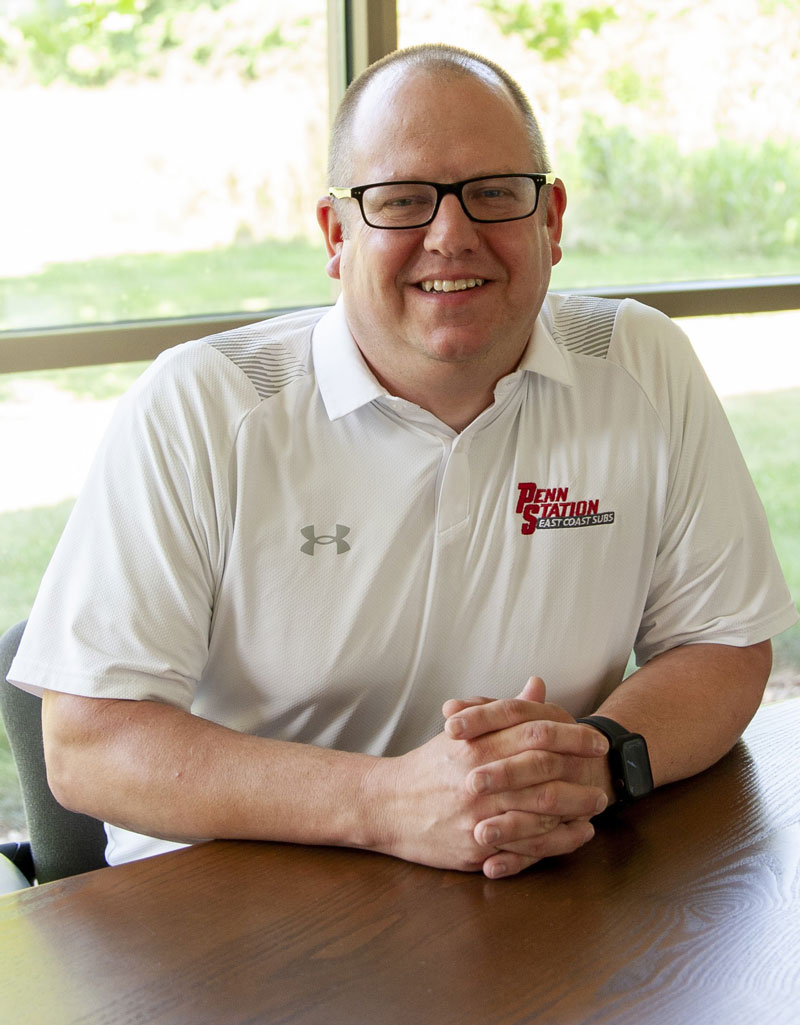
Hyper-personalized marketing
Penn Station East Coast Subs, which has 73 franchisees and 323 locations, is updating its technology to enhance the one-to-one connection with every customer and to improve the web-ordering experience.
A new loyalty app that will launch in the first half of 2024 will allow the brand to better market directly to customers. It provides data on what they eat from which location and when.
“When we understand a customer’s preferences and habits, we can better serve that person’s needs through suggestive selling, geo-targeting, and platform-specific preferences,” says Tyler Kraemer, director of franchise services.
Here’s an example of how this hyper-personalized marketing works: After a transaction, a customer may receive a promotion code or a special offer that provides an incentive to visit a particular store or to place a digital order from that location again. “This level of marketing automation not only brings benefit to the customer—and great benefit to the franchisee from revenue—but an overall much better brand experience,” Kraemer says.
Third-party aggregator tools have enabled Penn Station’s franchisees to take an increasing number of digital orders without changing operations. “We wanted to make sure that as we expanded our digital footprint, and we did this technology overhaul, it didn’t negatively impact the restaurant—the frontline team members, the managers who are dealing with it on a daily basis,” Kraemer says. “We were very mindful to build on what we had through existing channels so that it didn’t change anything at a point of sale, just how we were able to customize it to come into the point of sale. Tickets still come out the same way. There’s a very minimal lift for the restaurant to do anything different to accommodate these channels.”
Anytime new tech is introduced, he says, franchisees worry about its effect and whether it will slow operations. The brand’s tech committee helps to ensure that won’t happen. According to Kraemer, it’s important because exceptional service is the best local marketing a business can have. That’s how Penn Station plans to separate its restaurants from the others.
“We’re very intentional with what we do,” Kraemer says. “We’ve been successful for decades now, running a simple and straight-line operation. So, when we put technology into place, it’s an evolution, not a revolution, in the restaurants.”
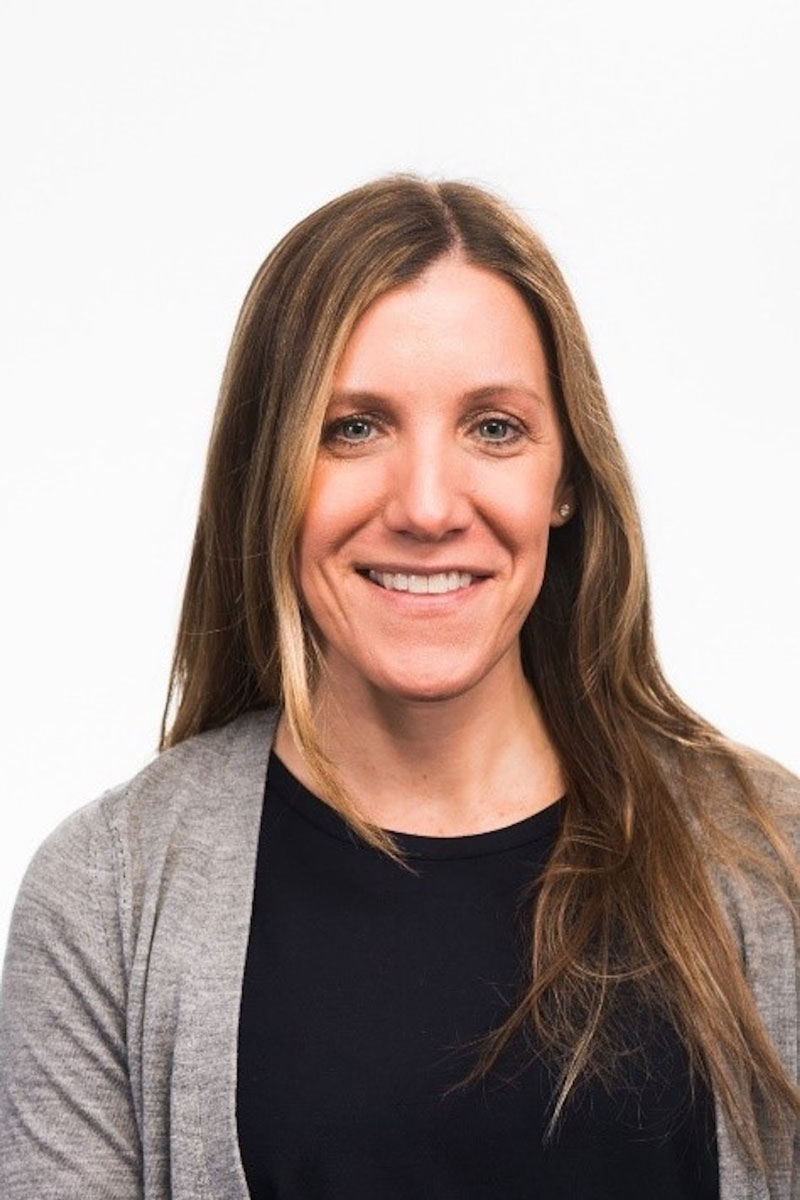
Tailored marketing
Last fall, Zaxby’s boosted its digital app activations by collaborating with local sports teams in two markets, says Joanna Bonder, senior director of loyalty and digital channel marketing.
With the University of Georgia football team entering the 2023 season fresh off back-to-back national championships and predicted to contend again for a title, the company launched its Big Zax Sack marketing campaign.
If UGA sacked the opposing quarterback during a home game, that would trigger an offer to loyalty members. They were notified via app that they could come into their local store the next day for a particular buy-one-get-one-free offer.
Zaxby’s was able to take advantage of the Bulldogs’ huge following. The university’s athletic program also pushed the promotion, which fans could opt into at any time in the stadium and on its social channels.
“It was a true partnership where we were communicating to our guests about it, and they were communicating to their fans about it as well. It was very successful,” Bonder says. In fact, it was so successful that the campaign, which was originally limited to home games, was extended to include the Bulldogs’ appearances in the Southeastern Conference Championship game and the Orange Bowl.
The company, which is based in Athens, Georgia, has 247 of its 941 restaurants in its home state. It formed a similar partnership in the same designated market area with the Atlanta Falcons.
Zaxby’s also tested a collaboration with the University of Louisville’s athletic department. Every win by the football team triggered an offer. That promotion also led to increased app activations. “It was a smaller audience in general but still very effective,” Bonder says.
Zaxby’s has had sports sponsorships before, but the company had never linked them to its digital loyalty program.
“We started in college towns. We’ve always had a connection to college sports. But, in the past, we struggled to connect that to activations in our digital channels,” says Erin Todd, senior director of digital customer experience. “So that was something we were looking to do: to connect with those users not just in the stadium at the sports event, but on their devices to bring that full circle for them.”
Area franchisees have raved about the results and want to expand the program.
“We haven’t officially planned anything for the fall. We’d like to also understand how we can create offers that franchisees can hopefully activate themselves in the future,” Bonder says. “Let’s say they’re working with a local high school. Can they create an offer where they’re helping to support that? We haven’t figured out exactly what is coming next this year other than we will likely get greater excitement to build across different franchisee groups.”
What is clear is that this trend of aiming tailored marketing to local audiences will continue, Todd says. “That’s really what this boils down to,” she says, “being able to deliver targeted offers, specific products, that a user is interested in. So, it’s really an overall investment in personalization.”
Share this Feature
Recommended Reading:
FRANCHISE TOPICS
- Multi-Unit Franchising
- Get Started in Franchising
- Franchise Growth
- Franchise Operations
- Open New Units
- Franchise Leadership
- Franchise Marketing
- Technology
- Franchise Law
- Franchise Awards
- Franchise Rankings
- Franchise Trends
- Franchise Development
- Featured Franchise Stories
FEATURED IN
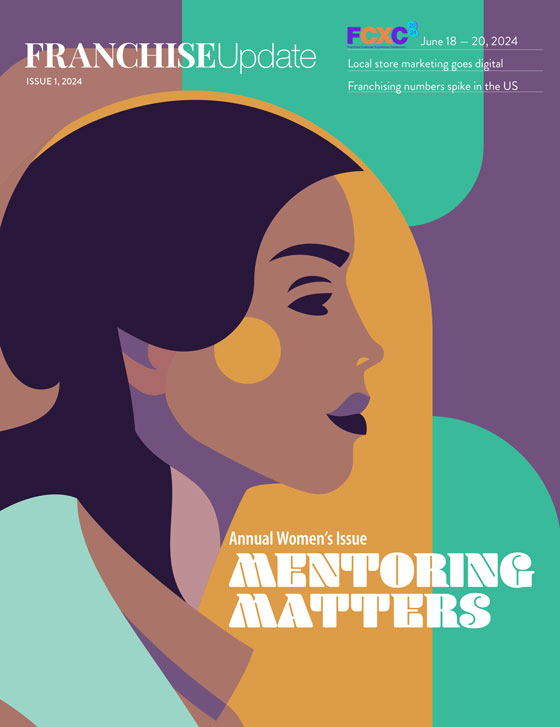
Franchise Update Magazine: Issue 1, 2024


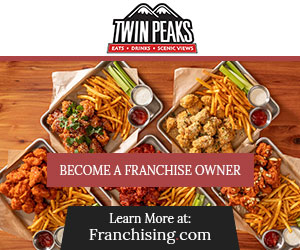





 The franchise listed above are not related to or endorsed by Franchise Update or Franchise Update Media Group. We are not engaged in, supporting, or endorsing any specific franchise, business opportunity, company or individual. No statement in this site is to be construed as a recommendation. We encourage prospective franchise buyers to perform extensive due diligence when considering a franchise opportunity.
The franchise listed above are not related to or endorsed by Franchise Update or Franchise Update Media Group. We are not engaged in, supporting, or endorsing any specific franchise, business opportunity, company or individual. No statement in this site is to be construed as a recommendation. We encourage prospective franchise buyers to perform extensive due diligence when considering a franchise opportunity.